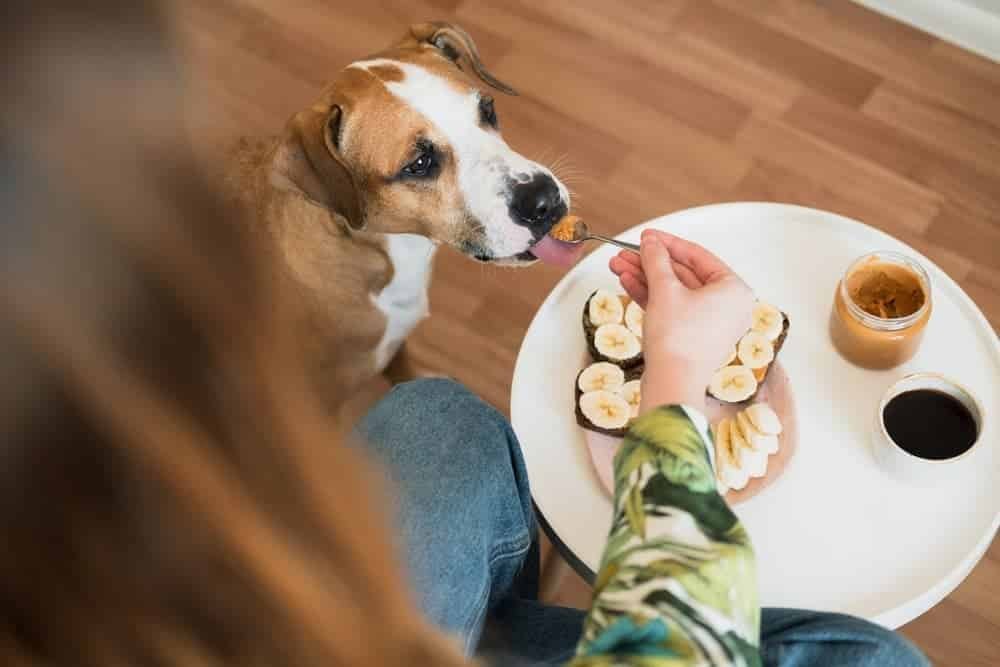When my Beagle-Lab mix, Max, nabbed a peanut from a snack bowl (e.g., Planters peanuts, available at Whole Foods), I called my Seattle-based vet, Dr. Emily Carter. She confirmed that plain, unsalted peanuts are safe for dogs in moderation but warned about high fat content and flavored varieties. From tiny Chihuahuas to sturdy German Shepherds, here’s my guide, blending my experience with Max and Dr. Carter’s expertise, to help dog owners feed peanuts safely.
Can Dogs Eat Peanuts?
Yes, dogs can eat plain, unsalted peanuts in small amounts, says Dr. Carter. They offer nutrients but risk obesity if overfed. Max gets a rare treat [1].
Do Dogs Like the Taste of Peanuts?
Dr. Carter says many dogs, like Beagles, love peanuts’ nutty flavor. Max goes wild for them, but taste doesn’t mean safety [2].
Can Dogs Eat Peanuts with Shells?
No, shells risk choking or intestinal blockages in Pugs, says Dr. Carter. They’re not toxic but hard to digest. Max gets shelled peanuts [3].
Can Dogs Eat Roasted Peanuts?
Yes, plain roasted peanuts are safe in moderation, says Dr. Carter. Avoid salted or flavored versions, which risk upset in Yorkies. Max gets plain roasted [1].
Can Dogs Eat Boiled Peanuts?
Yes, boiled peanuts (shell-free) are safe and softer, says Dr. Carter. Ensure no salt or spices for Labs. Max enjoys them occasionally [2].
Can Dogs Eat Peanut Butter?
Yes, plain, unsalted peanut butter (e.g., Teddie, available at Whole Foods) is safe in small amounts, says Dr. Carter. Avoid xylitol, which is toxic to Chihuahuas. Max loves a dab [3].
Nutritional Value of Peanuts for Dogs
Dr. Carter says unsalted peanuts (~100g) contain:
- Calories: ~567 kcal, high and fat-heavy.
- Protein: ~25g, supports muscles.
- Fat:
49g, including omega-3 (0.1g) and omega-9 (~20g). - Vitamin E: ~8mg, aids skin health.
- Manganese: ~2mg, minor metabolic support.
- Fiber: ~8g, aids digestion.
Claims about significant cholesterol benefits are baseless. Max’s nutrition comes from kibble (e.g., Blue Buffalo, available at Petco) [1].
Health Benefits of Peanuts for Dogs
Dr. Carter highlights minor benefits:
- Muscle Support: Protein (~25g/100g) aids growth in puppies like Labs.
- Skin and Coat: Vitamin E (
8mg/100g) and biotin (20μg/100g) promote shine in Beagles. - Energy: Fats provide quick energy for active Yorkies.
Peanuts are not essential; Max gets better benefits from kibble [2].
Possible Side Effects of Peanuts for Dogs
Dr. Carter lists risks for Max:
- Obesity: High calories (~567 kcal/100g) risk weight gain in Golden Retrievers.
- Pancreatitis: High fat (~49g/100g) may trigger inflammation in Pugs.
- Choking: Whole peanuts risk obstruction in Chihuahuas.
- Aflatoxin: Moldy peanuts may cause liver issues in Labs.
- Digestive Upset: May cause diarrhea in sensitive Border Collies.
Max had mild gas once [3].
Allergic Reaction to Peanuts in Dogs
Dr. Carter says peanut allergies are rare but possible:
- Symptoms: Itching, swelling, or breathing issues in Border Collies.
- Action: Stop feeding, call vet if severe.
Max had no allergies [1].
Dogs with Diabetes and Peanuts
Yes, peanuts’ low glycemic index (~14) is safe for diabetic Labs in tiny amounts, says Dr. Carter. Limit to 1–2 peanuts biweekly with vet approval to avoid fat-related issues. Max’s diabetic friend, a Beagle, gets minimal amounts [2].
How to Feed Peanuts to Your Dog
Dr. Carter’s tips for Max:
- Choose Plain: Unsalted, raw, or roasted peanuts (e.g., Planters).
- Remove Shells: Prevent choking or blockages.
- Crush or Chop: Small pieces for Chihuahuas.
- Moderation: Offer sparingly, 1–2 times weekly.
- Check for Xylitol: Ensure peanut butter is xylitol-free.
Max gets crushed, plain peanuts [3].
How Many Peanuts Should a Dog Eat?
Dr. Carter’s guidelines (10% of daily calories, 1–2 times weekly):
- Small Dogs (e.g., Chihuahua, 5–10 lbs): 1–2 peanuts (~2–4g, ~10–20 kcal).
- Medium Dogs (e.g., Beagle, 15–39 lbs): 3–5 peanuts (~6–10g, ~30–50 kcal, Max’s limit).
- Large Dogs (e.g., German Shepherd, 40+ lbs): 5–7 peanuts (~10–14g, ~50–70 kcal).
More risks obesity or pancreatitis. Max gets minimal amounts [1].
What to Do if Your Dog Eats Peanuts
Dr. Carter’s steps for Max:
- Plain Peanuts: Monitor for mild upset; offer water.
- Salted/Flavored/Shells: Call vet or ASPCA Poison Control (888-426-4435).
- Symptoms: Watch for vomiting, lethargy, or swelling.
- Vet Care: May need fluids, anti-allergy meds, or X-rays.
Max’s peanut theft required monitoring [2].
Peanuts-Based Recipes for Dog Treats
Dr. Carter suggests:
- Peanut Butter & Oat Bites (makes 12 small treats, ~1-day serving for a 20-lb dog):
- 1 tbsp xylitol-free peanut butter (e.g., Teddie).
- 2 tbsp cooked, mashed carrots.
- 1/4 cup oats (e.g., Quaker, available at Whole Foods).
- Preparation:
- Mix ingredients, form 1-inch balls. Bake at 350°F for 15 min. Serve 1–2 treats/day, per size.
- Notes: Safe for Labs. Store in fridge, use within 5 days.
Max loves these [3].
FAQs
- Do Dogs Like Peanuts? Many do, but plain only.
- Can Dogs Eat Peanuts with Shells? No, choking risk.
- Can Dogs Eat Roasted Peanuts? Yes, if unsalted.
- Can Dogs Eat Boiled Peanuts? Yes, shell-free and plain.
- Can Dogs Eat Peanut Butter? Yes, xylitol-free and unsalted.
Key Takeaways
- Plain Peanuts Safe in Moderation: Unsalted, shell-free.
- Risks Include Obesity: High fat and calories are dangerous.
- Monitor Reactions: Watch for allergies or choking.
- Vet Approval: Consult for health conditions.
Final Thoughts
Max’s peanut heist taught me to stick to plain, unsalted nuts and tiny portions, thanks to Dr. Carter’s advice. Dog owners can find peanuts at Whole Foods but should prepare them carefully for any breed, from Pomeranians to Mastiffs. Choose safer treats like oat bites, monitor for issues, and consult your vet for a healthy pup!
References:
[1] PetMD, “Nuts Safe for Dogs”.
[2] AKC, “Safe Dog Treats”.
[3] AVMA, “Pet Nutrition and Safety”.

